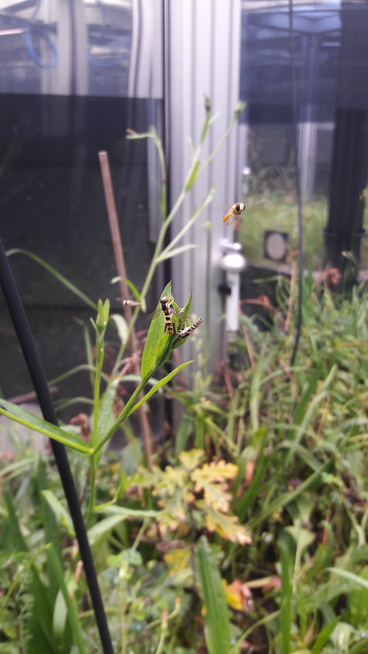2018 - Insect Armageddon
Invertebrates provide a broad set of ecosystem services that regulate the functioning of ecosystems. Recent findings of an almost 75 % decline in flying insect biomass over the past 27 years[1] motivated a consortium of iDiv scientists to investigate the consequences of aboveground invertebrate loss on ecosystem processes under controlled environmental conditions.
Insect Armageddon was conducted from April to November 2018 and represents the first collaborative study of the iDiv Ecotron, during which the 24 identical experimental EcoUnits ran simultaneously. Nineteen iDiv researchers submitted nine proposals to investigate how the decline in invertebrate biomass in artificial grassland ecosystems affects the biotic interactions between aboveground invertebrates, such as insects, plants, bacteria, and belowground organisms and processes, and thus the associated ecosystem functions and services. Using PhytOakmeters the iDiv Ecotron was linked with the TrophinOak platform.
In April 2018, grassland communities consisting of 12 central European species were established in the EcoUnits. To mimic invertebrate decline, we collected living aboveground invertebrates at two abundance levels (100 % and 25 %) and introduced them to 8 EcoUnits, respectively. Another 8 Units did not receive any fauna and served as a control. To account for the natural seasonal species turnover, invertebrate communities were exchanged regularly at a monthly interval.
In addition to subproject-specific papers, such as on energy fluxes through soil food webs, we will use this diverse dataset to collaborate on overarching syntheses that investigate the responses of the entire ecosystem to invertebrate decline by determining ecosystem multifunctionality.
Reference
[1] Hallmann, C. A., Sorg, M., Jongejans, E., et al. and de Kroon, H. (2017) More than 75 percent decline over 27 years in total flying insect biomass in protected areas. PLoS One, 12, e0185809.

